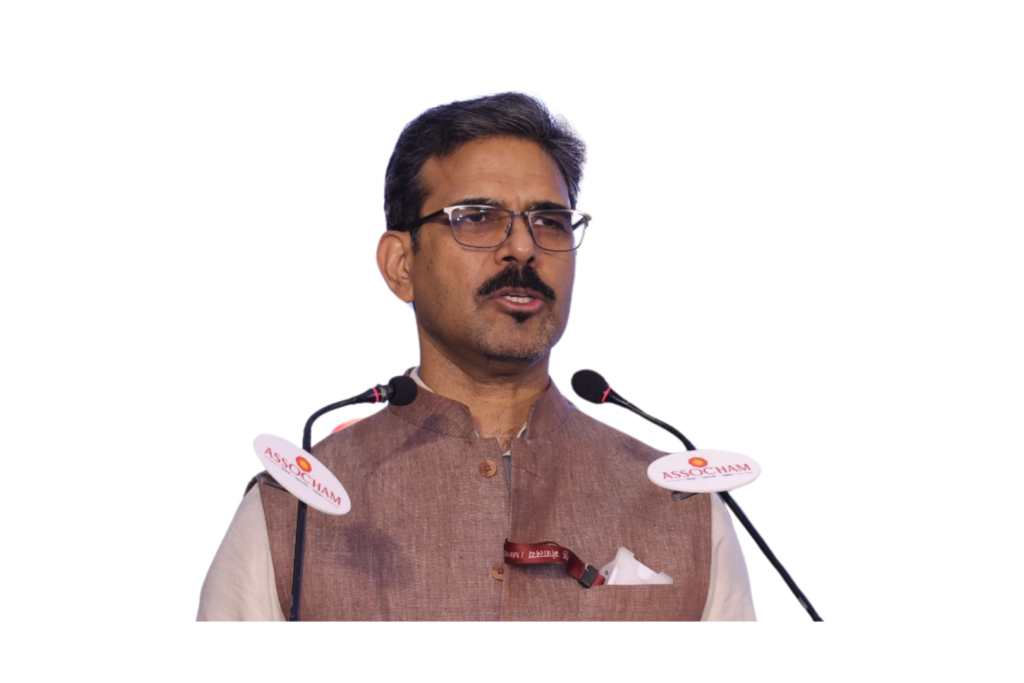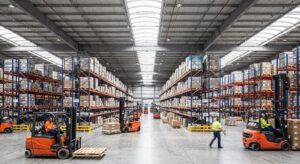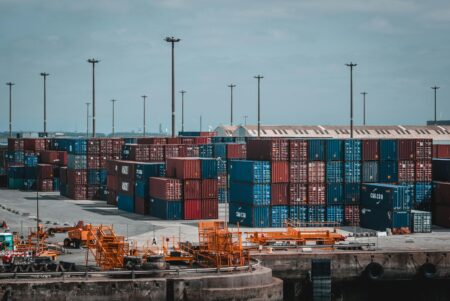Surendra Ahirwar, Joint Secretary, DPIIT, Ministry of Commerce & Industry, GoI, highlighted key advancements in India’s logistics sector through government initiatives and digital transformation in 2024. The year witnessed significant progress towards building a resilient logistics ecosystem.

Building resilience in logistics drives efficiency, sustainability, and long-term economic growth
The year 2024 marked a significant consolidation phase for India’s logistics sector, particularly through the PM Gati Shakti National Master Plan and the National Logistics Policy. Both initiatives have gained considerable momentum, with data-driven decision-making being a key component. The government, along with state authorities and industry players, has leveraged digital technology to optimise logistics operations, which in turn has reduced costs and improved the efficiency of infrastructure development. These efforts have ensured smoother project planning, faster execution, and greater cost-effectiveness.
Skills development focus
In 2024, a significant achievement was the focus on skill development in logistics. Over 115 Indian universities now offer logistics courses, with Gati Shakti University adding programs in multimodal logistics and supply chain management. Collaboration between DPIIT’s Logistics Division and the Logistics Sector Skill Council led to qualification packs used by skill development institutions under initiatives like PM Kaushal Vikaas Yojana. These efforts are preparing the next generation of professionals to drive the logistics sector forward.
Innovation and research
Surendra also emphasised the importance of innovation, particularly in hardware and machinery, to complement the digital advancements in the logistics sector. While digital technology has significantly improved operational efficiency, the sector must shift focus to developing cutting-edge equipment and machinery that can effectively move goods. He suggested that India needs to move away from a “jugaad” (makeshift) approach and embrace a more research-driven, scientific mindset for product development. Regular product upgrades, backed by robust research, will ensure that India remains competitive in the global logistics arena.
Collaborative approach
In 2024, the Indian government shifted towards a collaborative, integrated approach to infrastructure development, replacing isolated efforts by different ministries and states. This “whole of government” approach improved resource utilisation, enabled data-driven decisions, and facilitated faster, more efficient execution of infrastructure projects, becoming the new standard.
Resilience for Viksit Bharat
Surendra emphasised the logistics sector’s pivotal role in achieving India’s Viksit Bharat vision for 2047. By enhancing efficiency and sustainability, logistics resilience will naturally grow, benefiting the entire economy. A strong logistics ecosystem will drive sectoral growth, boost global competitiveness, and ensure long-term success for India.
Industry collaboration
The government has been actively fostering deeper collaboration between technology providers, logistics players, and other stakeholders. This collaboration is aimed at driving down logistics costs and improving infrastructure, which is essential for India to maintain its competitiveness. However, Surendra also pointed out that a key challenge remains in utilising the skilled workforce effectively. While the government has made strides in skill development, businesses must also ensure they tap into this talent pool to drive growth and innovation.
Entrepreneurial principles
Surendra concluded by sharing his five principles for aspiring logistics entrepreneurs, summarised as PQRST: pace, quality, research, sustainability, and trust. He emphasised setting the right growth pace, prioritising quality, investing in research, ensuring sustainability, and building trust with customers. These principles, he believes, are essential for long-term success and sustainability in the logistics sector.











